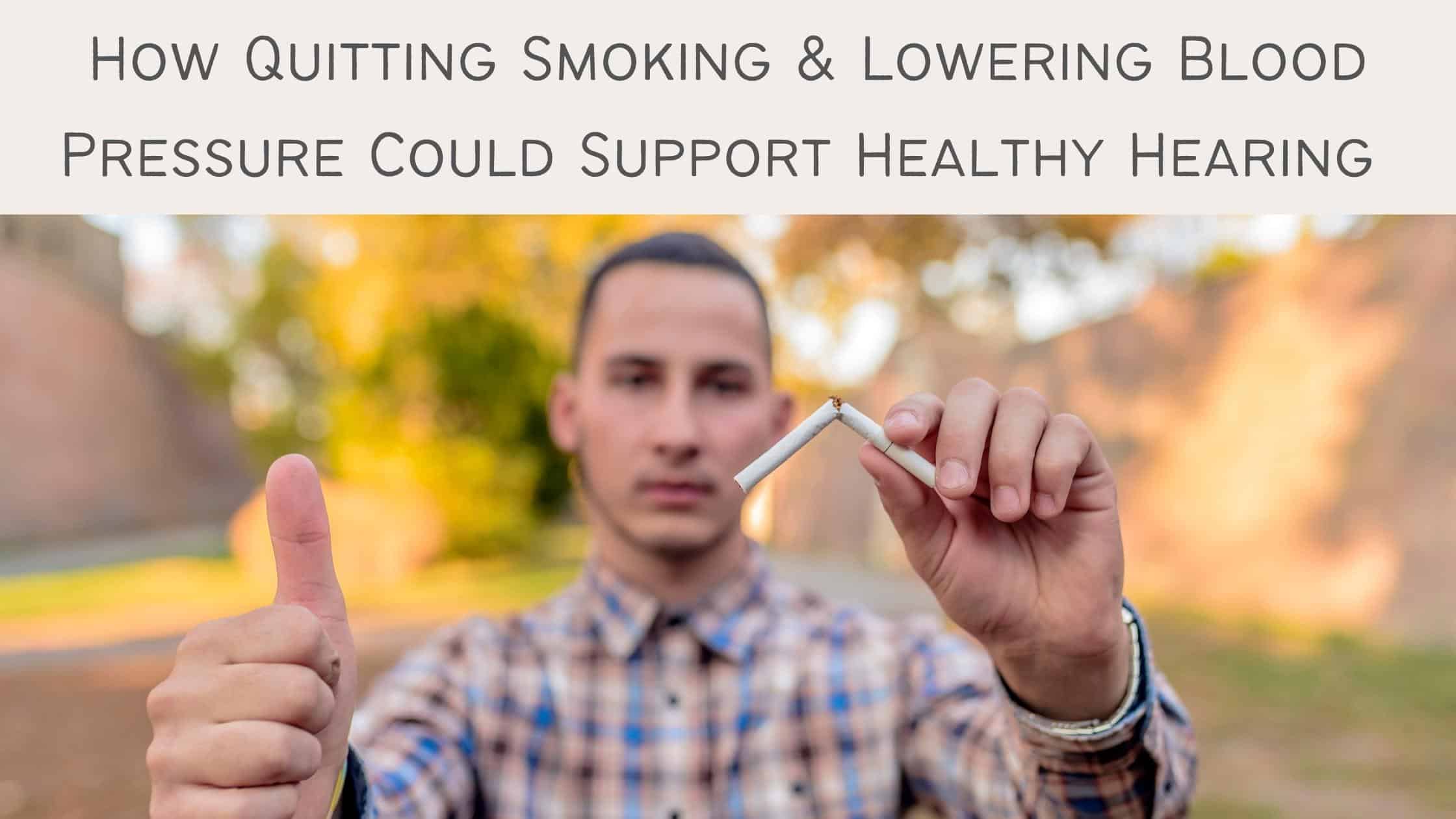When it comes to improving your overall health, there are few factors that can make as big a difference as quitting smoking and lowering your blood pressure. Smoking and high blood pressure make you vulnerable to a wide range of health risks, from cardiovascular disease to cancer. Both smoking and high blood pressure also play a role in your overall hearing health.
Now, new research is finding that when quitting smoking, lowering blood pressure and treating hearing loss are all undertaken, the three factors can work in conjunction to dramatically reduce a person’s risk of dementia. These findings emphasize how important it is to look at how risks to our wellbeing work in relation to each other and how risk reduction can take into account multiple approaches.
Smoking and Hearing Loss
It is well known that smoking can damage the throat and lungs, promote cancerous growth, damage the teeth, affect circulation and lead to diseases like emphysema and chronic bronchitis. In truth, a smoking habit damages every organ in the body, and it can play a role in hearing loss.
While more research is needed to fully understand the connections between smoking and hearing loss, multiple studies have found linkages between habitual smoking and the development of significant hearing issues. It is likely that smoking damages hearing by keeping tiny blood vessels constricted.
The chemicals in smoke constrict the circulatory system, which is part of how smoking contributes to high blood pressure. Another effect is that small components of circulation are essentially closed, sealing off blood flow to the body’s most delicate channels. These tiny pathways include the blood vessels responsible for nourishing the inner ear. Without circulation, the cells of the inner ear essentially starve, succumbing to weakness and damage, including the precious sensory cells responsible for detecting sound waves in the air.
Unlike other types of cells, the body cannot repair or replace these sensory cells, so damage suffered by improper circulation can result in permanent hearing injury.
High Blood Pressure and Hearing Loss
Hearing loss also has a clear correlation with high blood pressure, and for similar reasons to smoking. High blood pressure causes damage to blood vessels throughout the body. Especially susceptible to this harm are very small blood vessels, which can be damaged or blocked in ways that prevent them from properly circulating blood and nutrients to cells.
As with smoking, the result is blood vessels that cannot properly sustain the tiny cellular mechanisms that are critical to our hearing, the “hair cells” of the inner ear. While injured cells in many parts of the human body can be replaced if they are damaged, the cells we depend upon to hear cannot be replaced. Damage sustained as a result of high blood pressure can add up to significant hearing loss.
Hearing Loss and Dementia
Hearing loss has long been known to carry with it a higher risk of developing dementia, and science is starting to unravel the ways in which the two diseases connect to each other. The bulk of the answer may lie with the cognitive strain that hearing loss creates.
Untreated hearing loss can turn listening and communicating into daunting prospects. In order to comprehend speech, hearing loss requires that the brain use extra focus and mental resources to piece together meaning from partial clues. Not only is this way of hearing far slower and less accurate than normal hearing, it requires extra energy. This consistent taxing of cognitive functioning may exacerbate conditions leading to dementia, creating an excess of cognitive hurdles.
New Connections
Coming from the United Kingdom, new research anticipates that combined preventative measures of quitting smoking, lowering blood pressure through medication and managing hearing loss with hearing aids could cut their national dementia rates by 8.5%. Combining approaches to mitigating risk may prove to be the strongest tactic, cumulatively reducing harm on multiple fronts.
In the past research has shown that hearing aid use assists with cognitive performance by making speech comprehension easier. Lowering cognitive strain through hearing aid use has had positive outcomes both in lowering risk of dementia and in increasing the cognitive capabilities of people with dementia. Understanding the integral connection hearing has to cognitive strength connects it to other dementia health risks such as high blood pressure and smoking.
If you have experienced changes in your hearing and would like to schedule a hearing test, contact us today! We provide comprehensive hearing health services and we’re here to support you on your journey to better hearing!

